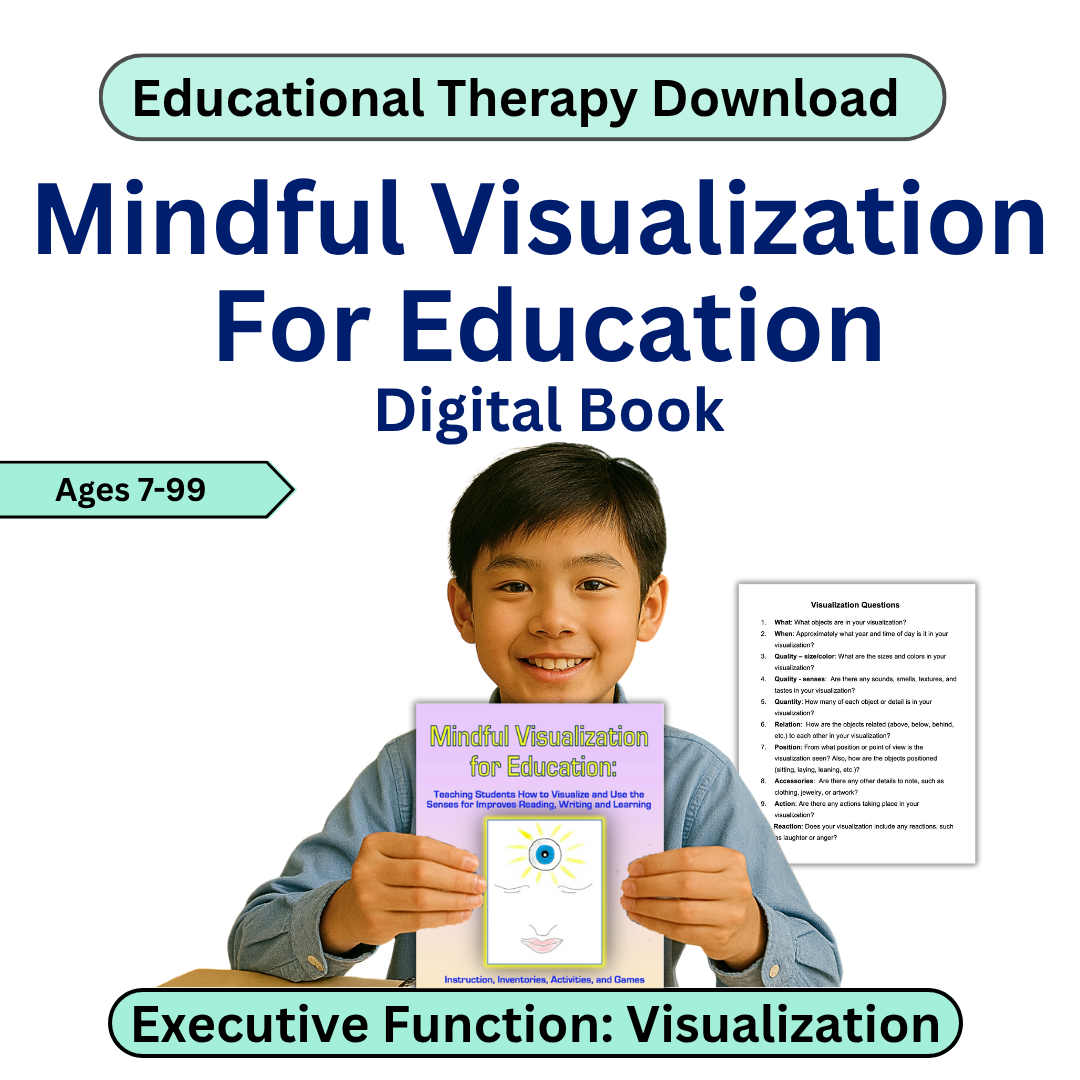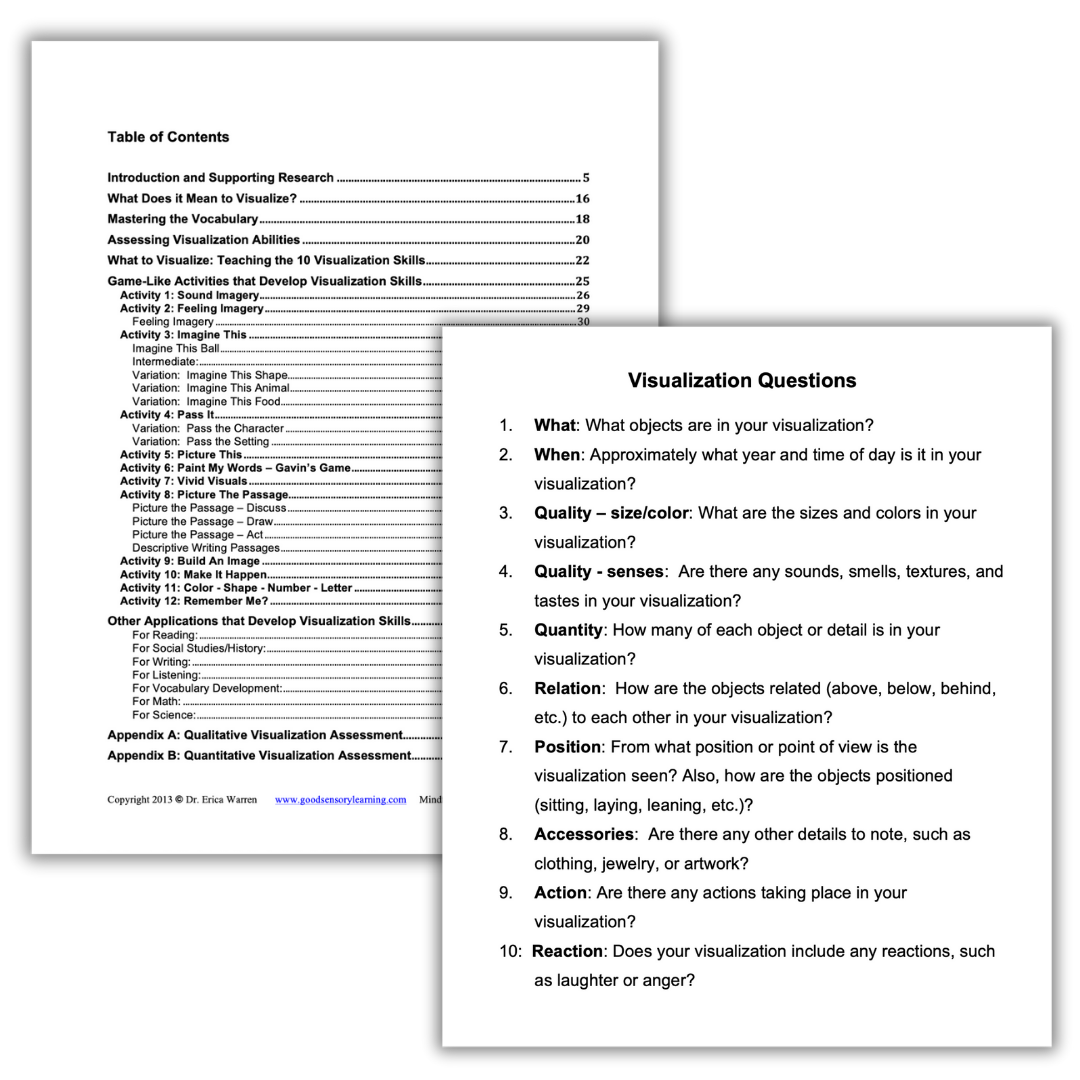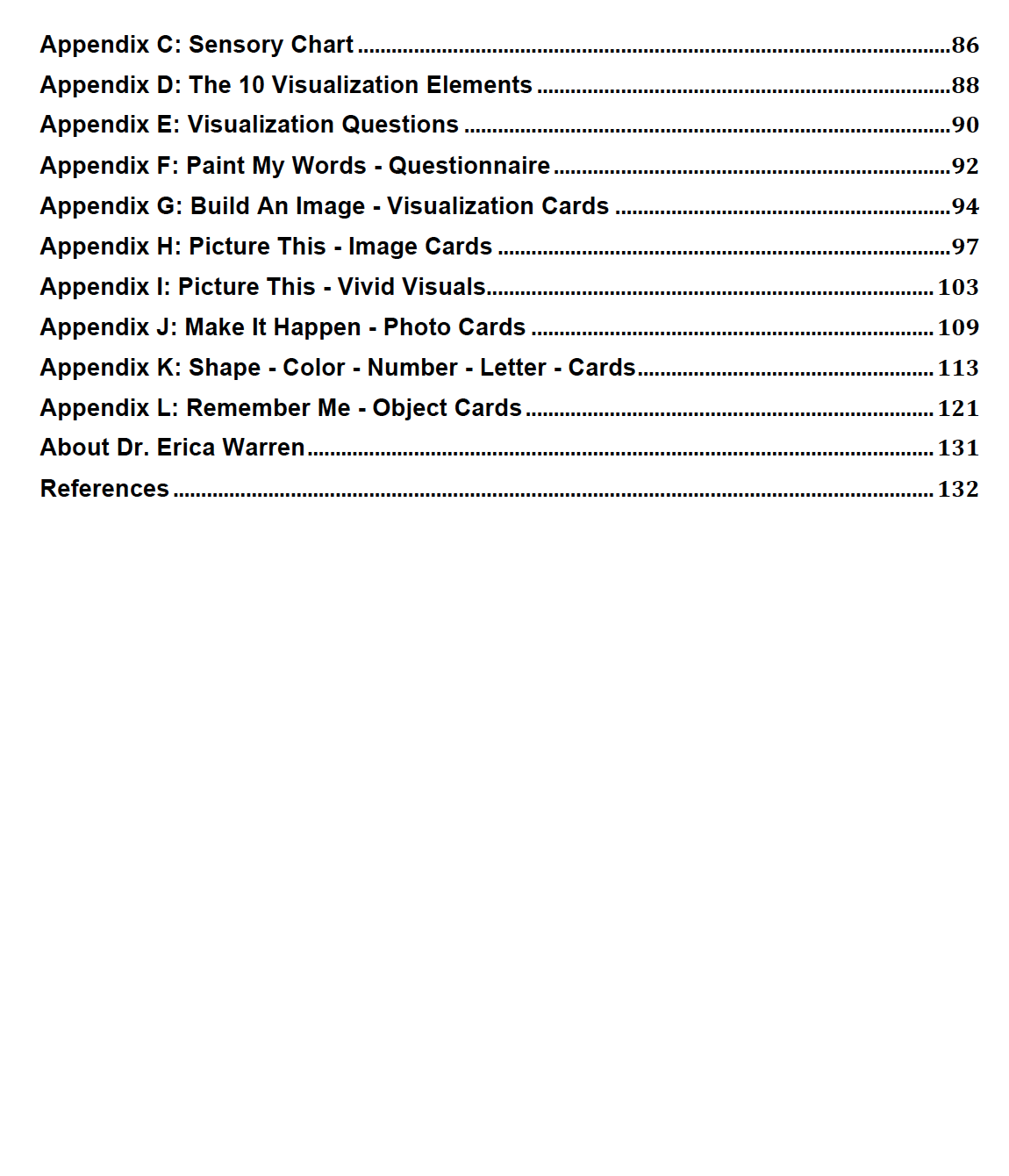Unlock the Power of Visualization: A Comprehensive Guide for Educators
Enhancing Learning through Visualization Techniques
Why is Visualization Important in Education?
Visualization is often referred to as a secret weapon for learning. This technique involves creating mental images that enhance understanding, retention, and the ability to recall information. When students actively visualize, they are able to connect abstract concepts to concrete mental images, resulting in improved learning across various subjects.
Key Benefits of Visualization in the Classroom:
- Boosts Memory: Visualization strengthens retention and recall of academic material by allowing students to "see" what they've learned in their mind's eye.
- Enhances Reading Comprehension: Students transform words on a page into vivid images, improving their understanding of text and making reading more engaging.
- Supports Writing: Visualization helps students craft detailed, descriptive narratives by imagining scenes, characters, and events before writing them.
- Facilitates Historical and Scientific Understanding: Visualization allows students to mentally reconstruct historical events or scientific processes, making abstract concepts more concrete.
- Improves Mathematical Skills: Visualization aids in solving complex math problems by helping students picture numbers, shapes, and operations.
- Strengthens Working Memory: Visualization is a key component of working memory, allowing students to mentally manipulate images and concepts in real time.
What's Inside the Guide?
This extensive guide is a one-stop resource for teachers, educational therapists, and learning specialists who want to integrate visualization strategies into their classrooms.
Research-Based Methods
The guide provides a comprehensive overview of the latest research supporting the use of visualization techniques in educational settings. You'll gain insights into the scientific basis for visualization and its applications in learning, memory retention, and academic success.
Assessments and Activities
With over 20 engaging, game-like activities, this resource ensures that learning is dynamic and interactive. These activities help students hone their visualization skills in a way that's fun and engaging. The guide also includes both quantitative and qualitative assessments that educators can use to track student progress and measure improvements in visualization abilities.
Instructional Recommendations
Tailored advice is provided to help educators apply visualization techniques across various academic disciplines, including:
- Reading Comprehension: Transforming text into vivid mental images for better understanding.
- Vocabulary Development: Visualizing word meanings and contextual usage.
- Writing Skills: Encouraging students to see their stories unfold before they write them.
- Math and Science: Helping students picture mathematical problems and scientific phenomena for better understanding.
What is Visualization?
Visualization is the process of creating mental images to understand, process, and retain information. These mental images can represent past experiences, present concepts, or future possibilities, and can arise either spontaneously or be intentionally cultivated.
For students, visualization enhances their ability to engage deeply with the material they are learning, whether they are reading a book, solving a math problem, or trying to understand historical events.
Unlock the Power of Visualization in Your Classroom
This comprehensive resource is a must-have for educators looking to empower students with the tools they need for academic success. By integrating visualization techniques into your teaching practices, you can not only boost your students' learning but also foster a deeper engagement with the material.
Want to learn more? Explore the research behind visualization techniques in education by visiting Dr. Warren's in-depth blog post: The Key to Improved Attention and Memory in Education.
This guide is ideal for teachers, special educators, and educational therapists looking to empower their students with visualization skills that will enhance reading, writing, math, and more. If you're ready to take your students' learning to the next level, download this guide today.
Order Now and Start Transforming Learning
Unlock the magic of visualization and help your students see their way to success! Explore more resources, assessments, and expert strategies at Good Sensory Learning.
This comprehensive resource is a must-have for educators looking to empower students with a tool that not only enriches their academic skills but also fosters a deeper engagement with learning material. To explore more about the research and effectiveness of visualization in education, visit Dr. Warren's detailed blog post: The Key to Improved Attention and Memory in Education.
Each purchase is a single license, for a single teacher, parent, or therapist. If additional individuals wish to use the product, please purchase additional copies. Thank you.




